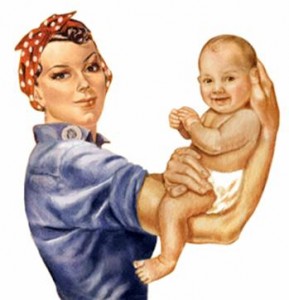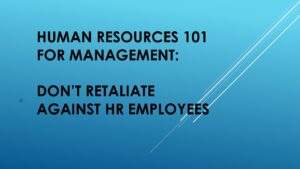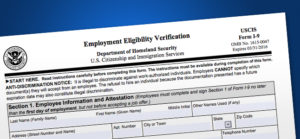 In February 2012, a Houston federal judge made national news when he dismissed the case of Donnicia Venters. Venters was a new mother attempting to return to work after maternity leave. She advised her employer that she was still lactating, and asked if she could use a back room at work to pump her breasts. After making this request, her supervisor allegedly took a long pause and told her that her position had already been filled. Venters filed a sex (gender) discrimination complaint, and the employer responded by alleging that Venters had abandoned her job. A lawsuit was later brought by the Equal Employment Opportunity Commission on behalf of Venters.
In February 2012, a Houston federal judge made national news when he dismissed the case of Donnicia Venters. Venters was a new mother attempting to return to work after maternity leave. She advised her employer that she was still lactating, and asked if she could use a back room at work to pump her breasts. After making this request, her supervisor allegedly took a long pause and told her that her position had already been filled. Venters filed a sex (gender) discrimination complaint, and the employer responded by alleging that Venters had abandoned her job. A lawsuit was later brought by the Equal Employment Opportunity Commission on behalf of Venters.
The judge on Venters case, a 71 year old male, later dismissed her discrimination claim stating that lactation was not a pregnancy-related medical condition, and therefore not sex discrimination even if her allegations were true. A collective gasp of astonishment by women and employment lawyers was later heard. The Pregnancy Discrimination Act prohibits discrimination based on pregnancy, childbirth, or related medical conditions. How could this employer’s actions not be unlawful?
As a whole, lawyers and judges are not the most empathetic group. Sure, we had pretty good grades that got us into law school. There we learned about legal concepts with strange Latin names. But we are not taught to understand people different from us, or to have a compassion for those who are in the greatest need of legal protections – the powerless and the vulnerable. This creates an obvious disconnect between our legal system and those it is meant to serve. This chasm, however, can be partially filled by attorneys and judges that are diverse in backgrounds, experiences, races and genders.
El Paso is blessed with an abundance of smart, hardworking and compassionate judges. We also have great diversity in our courtrooms, including an all-female Court of Appeals, as well as Latino, Anglo and Asian-American judges. While diversity on the bench is no guarantee of fairness or competence, it does ensure that different perspectives will have a voice in the judicial process. This is a valuable asset if our legal system wants to retain the public’s confidence.
I don’t want to imply that male judges are incapable of fairly deciding sex discrimination cases, nor do I want to speculate why the judge in Venters’ case came to the conclusion he did. But let’s face it, we males have no personal experience with pregnancy, child birth, or post-natal issues that women experience. Since more than half of the workforce is female, perhaps a little physiological education is needed for the other sex.
Ms. Venter’s case was appealed to the Fifth Circuit Court of Appeals, which issued a written decision a few weeks ago. The Court reversed the Houston judge, finding that lactating was indeed a pregnancy-related medical condition protected under sex discrimination laws. Ms. Venters will get her day in court. One must wonder, however, if a female judge wouldn’t have come to that conclusion a lot sooner.
“I feel cheated never being able to know what it’s like to get pregnant, carry a child and breastfeed.”
– Dustin Hoffman





